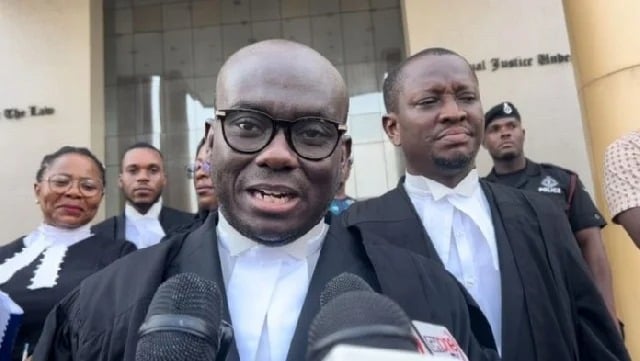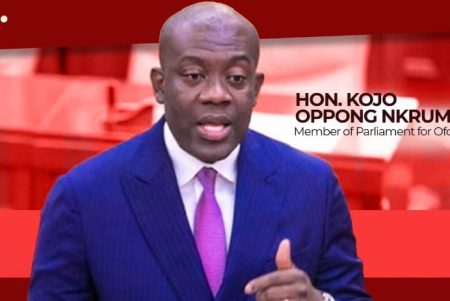The removal of Ghana’s Chief Justice, Gertrude Torkornoo, has sparked a heated debate about due process and judicial independence. Godfred Dame, former Attorney-General and lead counsel for the suspended Chief Justice, has vehemently criticized the process leading to her ousting, labeling it as “heavily flawed” and riddled with constitutional violations. Dame argues that the proceedings, culminating in a Supreme Court decision to dismiss Justice Torkornoo’s injunction application, disregarded fundamental tenets of Ghana’s 1992 Constitution, thereby setting a dangerous precedent for the future of the judiciary. This controversy underscores the delicate balance between accountability and the protection of judicial autonomy, a cornerstone of any democratic society.
Dame’s critique centers on the alleged procedural improprieties that characterized the entire process. He contends that the steps taken to remove Justice Torkornoo were not in accordance with the constitutional safeguards designed to protect judicial officers from arbitrary removal. These safeguards, he argues, are crucial for maintaining the independence of the judiciary and ensuring that judges can perform their duties without fear of reprisal or undue political influence. The perceived disregard for these protections in Justice Torkornoo’s case, according to Dame, represents a significant erosion of judicial autonomy and raises concerns about the potential for future abuses of power. He expresses astonishment that the Supreme Court, the ultimate arbiter of constitutional matters, appeared to condone these violations, further exacerbating the damage to judicial integrity.
Beyond the immediate implications for Justice Torkornoo, Dame emphasizes the broader ramifications of this case for Ghana’s judicial system. He argues that the precedent set by this removal process could undermine the security of tenure for all judges, creating an environment of fear and self-censorship. If judges believe their positions are precarious and subject to political manipulation, they may be less inclined to make impartial decisions, especially in cases involving powerful individuals or entities. This could erode public trust in the judiciary and undermine its ability to serve as a check on executive and legislative power. The sanctity of judicial independence, Dame argues, is not merely a matter of procedural correctness; it is a fundamental pillar of democratic governance.
Dame’s disappointment with the Supreme Court’s decision is palpable. He finds it surprising that the highest court in the land would seemingly acquiesce to what he perceives as blatant violations of constitutional principles. He suggests that the court’s decision may have been influenced by extraneous factors, potentially undermining its impartiality and eroding public confidence in its ability to act as an independent arbiter of justice. This perceived acquiescence, he argues, not only fails to uphold the principles of justice but also sets a dangerous precedent for future cases, potentially emboldening those who seek to circumvent constitutional safeguards for political gain.
The core of Dame’s argument lies in the assertion that this case transcends the individual circumstances of Justice Torkornoo. He frames the issue as a matter of paramount importance for the entire judicial system and, by extension, the future of democracy in Ghana. The removal process, he argues, represents a direct attack on the principles of judicial independence and security of tenure, which are essential for upholding the rule of law and safeguarding the rights of all citizens. By failing to protect these principles, the Supreme Court, in Dame’s view, has inadvertently weakened the very foundations of Ghana’s democracy.
Looking ahead, Dame warns of the potential long-term consequences of this decision. While the immediate impact may be confined to Justice Torkornoo’s removal, he believes the damage to the judiciary’s independence could have far-reaching implications. He foresees a future where judges may be hesitant to make unpopular but legally sound decisions, fearing reprisal from those in power. This could lead to a chilling effect on judicial activism and erode the judiciary’s ability to act as a check on the other branches of government. Dame’s warning serves as a stark reminder of the fragility of democratic institutions and the importance of safeguarding them against political interference. He believes that the full consequences of this decision may not be immediately apparent but will ultimately manifest in a weakened judiciary and a compromised democratic system.














